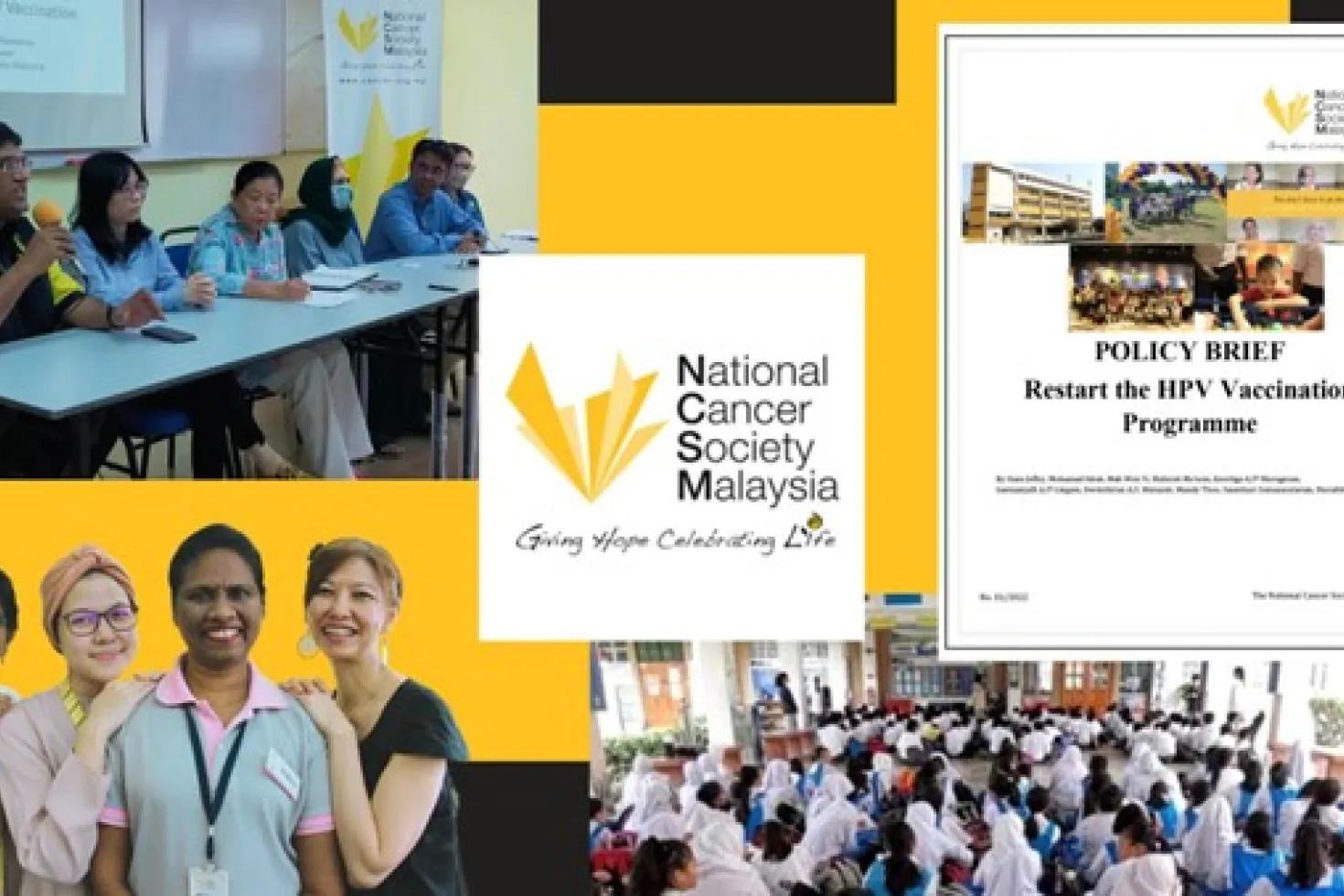Harnessing media platforms for HPV Advocacy in Malaysia

Introduction
Although the vaccine was initially rolled out successfully in Malaysia, in-school vaccination programmes came to a halt in the country during COVID. The National Cancer Society Malaysia (NCSM) utilised social media and other platforms to drive awareness and advocacy for HPV vaccination, showcasing the impactful results that can be achieved through data-driven strategies.
Background
Cervical cancer is amongst the top three most common cancers in Malaysian women with human papillomavirus (HPV) being the main cause. Studies have shown that HPV vaccines can reduce the risk of cervical cancer and protect individuals against 90% of HPV-related cancers. Starting in 2010, the Malaysian government implemented a successful national school-based HPV immunisation programme. However, this programme was halted due to the pandemic as schools were closed in 2020 and 2021. From early 2022, NCSM received numerous queries and complaints of not being informed by relevant authorities on the resumption of the HPV vaccination programme. In response, NCSM investigated the issue further, conducting a research survey of all districts in every state in Malaysia.
Actions
The research sampled secondary schools on whether HPV vaccination had been carried out between the years 2020 and 2022. Based on the ground-level survey undertaken by NCSM, it was found that the HPV vaccination programme for 13-year-old girls was currently halted indefinitely and overall, most Malaysian states did not conduct any HPV vaccination programmes from 2020 to 2022. These findings were presented in a discussion with Malaysia’s Ministry of Health (MOH) and other stakeholders in August 2022 to urge the government to restart the programme. Additionally, a policy brief was created by NCSM to showcase the data that was collected on the issue at hand.
To further strengthen the call to action, the policy brief was published and sent to the media where it received some traction and NCSM proceeded to hold a press conference. The press conference included leaders in the field such as Dr Narimah Awin, former director of the Family Health Development Division of the MOH in Malaysia, a significant figure who had pioneered the HPV vaccination programme in Malaysia in 2010.
Results
As news spread via social media and other platforms on this matter, the MOH responded in September 2023 acknowledging the issue, with the Minister of Health announcing steps were being taken to resume the programme soon. This was considered a major achievement as both societal and political attention towards the issue was garnered with desired outcomes.
In the following months, with a change of government, the plans to restart the HPV immunisation programme were again uncertain. NCSM continued to champion the matter, reaching out to lawmakers to address the issue in Parliament. A call out to parents via social media was also completed in June 2023 to ascertain the status of their children’s vaccination status to map the coverage and need.
Conclusion
From this experience, one of the key lessons learnt is that collecting and analysing data is crucial for shaping and supporting advocacy strategies, addressing specific concerns and strengthening the case. Furthermore, though news and messages can advocate for a cause, sometimes it is not enough. There is a need for sustained pressure on relevant stakeholders to raise their voices and keep the issue relevant. Unfortunately, at this time of writing in October 2023, it was noted that no HPV vaccination programme has been restarted officially so with that, NCSM is turning advocacy into action by taking steps to proactively start an ‘HPV catch-up vaccination’ programme nationwide.
Learn more
Last update
Monday 02 September 2024